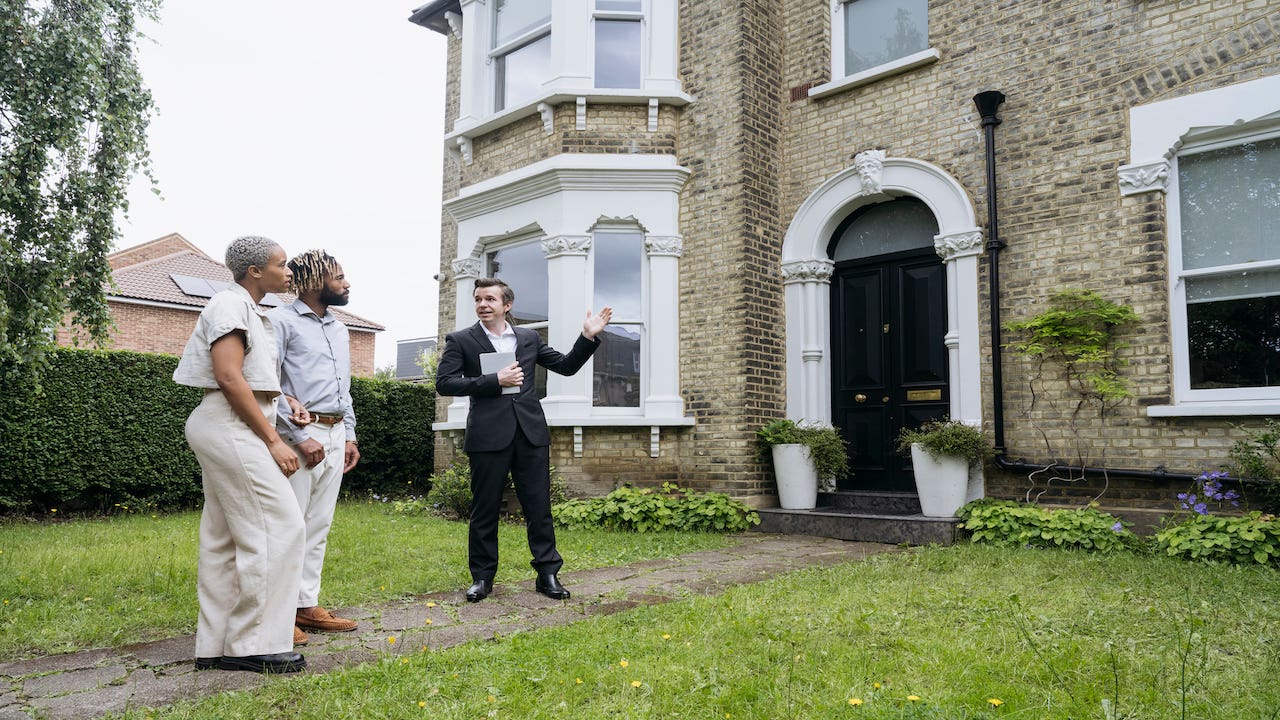Can a non-U.S. citizen buy a house here?




Key takeaways
- Under current law, you do not have to be a U.S. citizen to buy a home in the U.S.
- The vast majority of non-resident buyers come from Canada, China, Mexico and India.
- Many mortgage lenders offer conventional and FHA home loans to non-U.S. citizens.
You don’t have to be a U.S. citizen to buy a home in the U.S. In fact, you don’t even have to be a U.S. resident — anybody who wants to can purchase property here.
Between April 2023 and March 2024, the value of residential property in the United States that was sold to foreign buyers totaled $42 billion, according to the National Association of Realtors (NAR)’s International Transactions in U.S. Residential Real Estate report. (Despite the high dollar amount, these transactions accounted for just 1.3 percent of existing home sales during that time period.) The majority of non-resident buyers are from Canada, followed by China, Mexico and India.
Can a non-resident buy a house in the U.S.?
Yes. While this may all change under the Trump administration, under current law, any non-U.S. citizen — including permanent residents, temporary residents, non-residents, refugees, asylum seekers and those who are recipients of Deferred Action for Childhood Arrivals (DACA) relief — can buy property in the U.S. legally.
“Purchasing a residential property in the U.S. is open to any individual regardless of their citizenship,” says Jen Horner, a Realtor with Masters Utah Real Estate in Salt Lake City and Park City.
There are also no limits surrounding the type of property that can be purchased. A non-U.S. citizen can buy a condo, single-family home, townhouse — or even land with no structure on it at all.
“There are no restrictions in the United States on purchasing a property as a foreign national,” says Chase Michels, of the Michels Group at Compass in Hinsdale, Illinois. “This applies to resident foreign nationals who might want to buy property for primary residence based on where they currently live in the United States, or non-resident foreign investors looking to buy property for other reasons — such as investment use or a vacation home.”
According to the NAR report, 76 percent of foreign buyers purchased either a detached single-family home or townhome, and 45 percent purchased a property for use as a vacation home, rental or both.
What documents does a non-resident need to buy a home?
Non-citizen buyers are typically required to provide additional documentation to complete a home purchase in the United States, compared with U.S. citizens. The exact requirements vary, however, depending on whether the home is being purchased with cash or a mortgage, and based on the specific resident status of the buyer. Some of the basic requirements for non-U.S. citizen buyers, Michels says, often include:
- A foreign passport, U.S. visa or driver’s license
- A Social Security number or Individual Taxpayer Identification Number (ITIN)
- Financial statements from applicant’s foreign bank, if applicable
- Evidence of financial assets/income (bank statements, etc.)
- Tax returns (preferably U.S., if applicable)
All-cash purchases may require additional paperwork, because any cash transaction of more than $10,000 must, by law, be reported to the IRS. “Cash purchases will require proof of identity and reporting the purchase to the federal government,” says Horner. “If a mortgage lender will be used, they have the ability to request as much documentation as they feel necessary to advance [the] mortgage application.”
Financing for non-residents
Non-citizens can also obtain a mortgage to finance home purchases in the United States. But it’s complicated: Non-citizen homebuyers will likely have slightly more complex application requirements to establish their financial qualifications, and a larger down payment may be required as well. They will also have more complex tax laws to comply with as homeowners.
In general, mortgage lenders prefer to work with applicants currently living in the United States, and who are classified as permanent or non-permanent residents. (Individuals who have a green card and a Social Security number are permanent residents, while those who have a Social Security number, but no green card, are non-permanent residents.) Their rationale is simple: Applicants residing in this country are viewed as less of a risk, particularly in case of default on the loan.
A buyer’s residency status impacts the specific type of mortgage that can be used. There are two main categories of lending for non-citizen purchases.
-
Permanent residents: Mortgage applicants who are permanent residents can usually qualify for a conventional mortgage backed by Fannie Mae or Freddie Mac, as well as Federal Housing Administration (FHA) loans. “Many banks and mortgage companies offer conventional and FHA home loans to non-U.S. citizens, provided they can verify their residency status, work history and financial track record,” says Michels.
-
Non-permanent residents: Applicants living abroad can buy properties in this country using what’s known as a foreign national loan or foreign national mortgage loan. These loans are typically designed for borrowers living outside the country who are seeking to either purchase or refinance. Foreign national mortgages are not backed by Fannie Mae or Freddie Mac.
Other rules and restrictions to know about
Tax rules also apply to properties owned by non-U.S. citizens. For instance, if a non-U.S. citizen rents out the property purchased to generate income, then that income must be reported and taxes must be paid both in the United States and in the property owner’s home country (if applicable), says Bruce Ailion, a real estate attorney and Realtor with RE/MAX Town & Country in Atlanta. In addition, non-U.S. citizens are liable for paying local property taxes, just like anyone else.
When a non-U.S. citizen sells a U.S. property, capital gains tax laws will typically apply as well. “When selling a property in the U.S., there are special withholding provisions that must be complied with,” says Ailion. “A tax advisor with specific knowledge in international tax should be consulted.”
All Fair Housing Act and other anti-discrimination protections apply to real estate transactions involving non-U.S. citizens, just as they would with citizens — these laws are in force no matter who the buyer is, says Michels.
Bottom line
It is entirely possible to purchase a home in the U.S. as a non-U.S. citizen, and there are no limitations on the type of property that can be purchased. However, the situation can be complicated, especially if the purchase is being financed with a mortgage. The path to U.S. homeownership is certainly not blocked for non-citizens — it just may have a few speed bumps on it. Working with a local real estate agent who has experience with your situation can help smooth the way.
Why we ask for feedback Your feedback helps us improve our content and services. It takes less than a minute to complete.
Your responses are anonymous and will only be used for improving our website.
You may also like

Can I use my 401(k) to buy a house?

Can you buy a home on disability?

Buying a home after foreclosure

